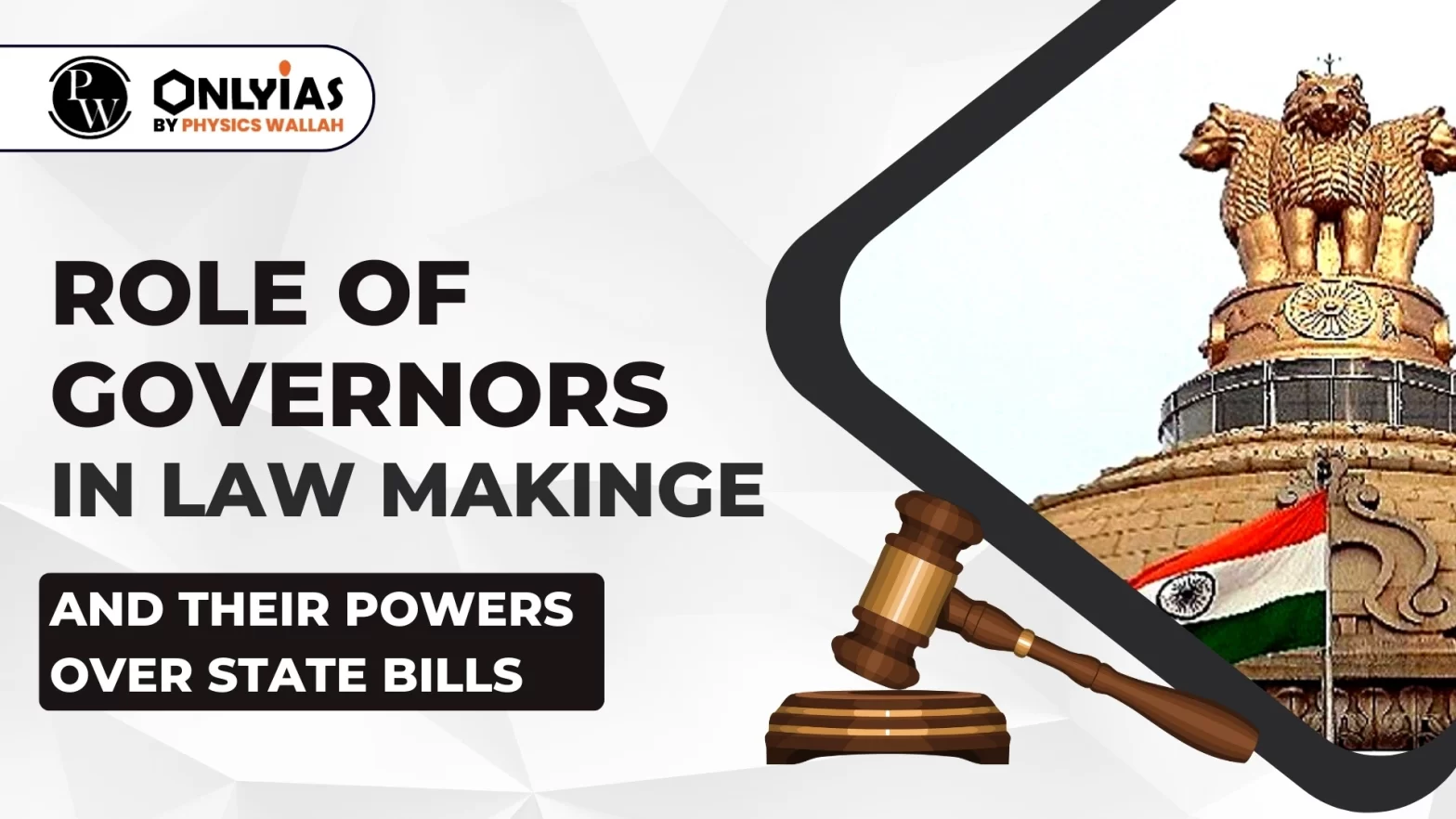Context: This article is based on an Editorial “A blow for the rights of the legislature, in law making” which was published in the Hindu. Withholding of bills was usually practiced by some Governors and was a cause of conflict between the Governor and State Legislature but the Supreme Court’s judgment in the Punjab case has brought greater clarity to Article 200 and Governors will have to quickly take a decision on the Bills.
| Relevancy for Prelims: Article 200, Article 213, Article 254, and the State of Punjab vs Principal Secretary to the Governor of Punjab and Another case.
Relevancy for Mains: Role of Governors in law making, and associated Challenges. |
Governor Can’t Keep Bill Pending Indefinitely: Supreme Court
- Assent of the Governor is mandatory after the Reconsideration: The Governor may send the Bill back to the Assembly with a request for reconsideration of the Bill as a whole or certain provisions thereof, but if the Assembly after such reconsideration passes the Bill with or without the amendments, the Governor shall not withhold assent from the Bill.
- Protection of the Rights of the Legislature: As by this judgment, the option of withholding assent is virtually knocked and has protected the rights of the legislature in the law making.
Continue Reading: Governor Can’t Keep Bill Pending Indefinitely
Role of Governors in Law Making and Their Powers Over State Bills
- Reserving a Bill for the consideration of the President: As per Article 200, there are few Bills which are mandatorily to be reserved for the consideration of the President and hence, means the consideration by the Union government.
- Examples of Such Bills: Bills that derogate from the powers of the High Court in such a way as to endanger the constitutionally designed position of that court.
- Using a surface view, the Governor can use his discretion to send any Bill to the President.
- Examples of Such Misuse:
- Kerala: When the Supreme Court took up the Kerala government’s petition challenging the Governor’s inaction on Bills for more than 2 years, he gave his assent to one Bill and sent the seven Bills to the President for his consideration.
- Tamil Nadu: The Tamil Nadu Assembly after reconsideration sent the 10 Bills to the Governor without accepting any amendments, then rather than giving his assent, he sent all those Bills to the President for his consideration.
Reservation of Bills by Governors for President’s Consideration: Constitutional Provisions
- Article 213 of the Indian Constitution: It deals with the ordinance-making power of Governors.
- Under clause (b) of this Article, the Governor can promulgate an ordinance only with instructions from the President in a case where he would have deemed it necessary to reserve a Bill containing the same provisions as in the ordinance.
- Also, the words “deemed it necessary” indicate the making of judgment by the Governor in terms of the constitutional scheme of the power of legislative division.
- Article 254 of the Indian Constitution: Under clause (2) of this Article, a Bill on a Concurrent subject can be or needs to be sent to the President for assent only if it contains provisions contrary to an existing central law.
-
- However, it does not mean that every Bill on a concurrent subject should be sent to the President for assent.
- In fact the President has no jurisdiction to scrutinize and give assent to a Bill exclusively on a subject in the State List.
Conclusion:
- A Governor cannot send to the President for assent Bills which are exclusively on the State subject and also cannot send Bills on concurrent subjects if they do not contain provisions contrary to the central law.
- If the Governor thinks that a Bill contains unconstitutional provisions, then the only option is to send it back to the Assembly for reconsideration.
- Also, the constitutional validity of a law is decided by the court and neither the Governor nor the President has any jurisdiction over it.
| Prelims Question (2014)
Which of the following are the discretionary powers given to the Governor of a State?
1. Sending a report to the President of India for imposing the President’s rule
2. Appointing the Ministers
3. Reserving certain bills passed by the State Legislature for consideration of the President of India
4. Making the rules to conduct the business of the State Government
Select the correct answer using the code given below:
(a) 1 and 2 only
(b) 1 and 3 only
(c) 2, 3 and 4 only
(d) 1, 2, 3 and 4
Ans: (b) |
![]() 19 Dec 2023
19 Dec 2023
